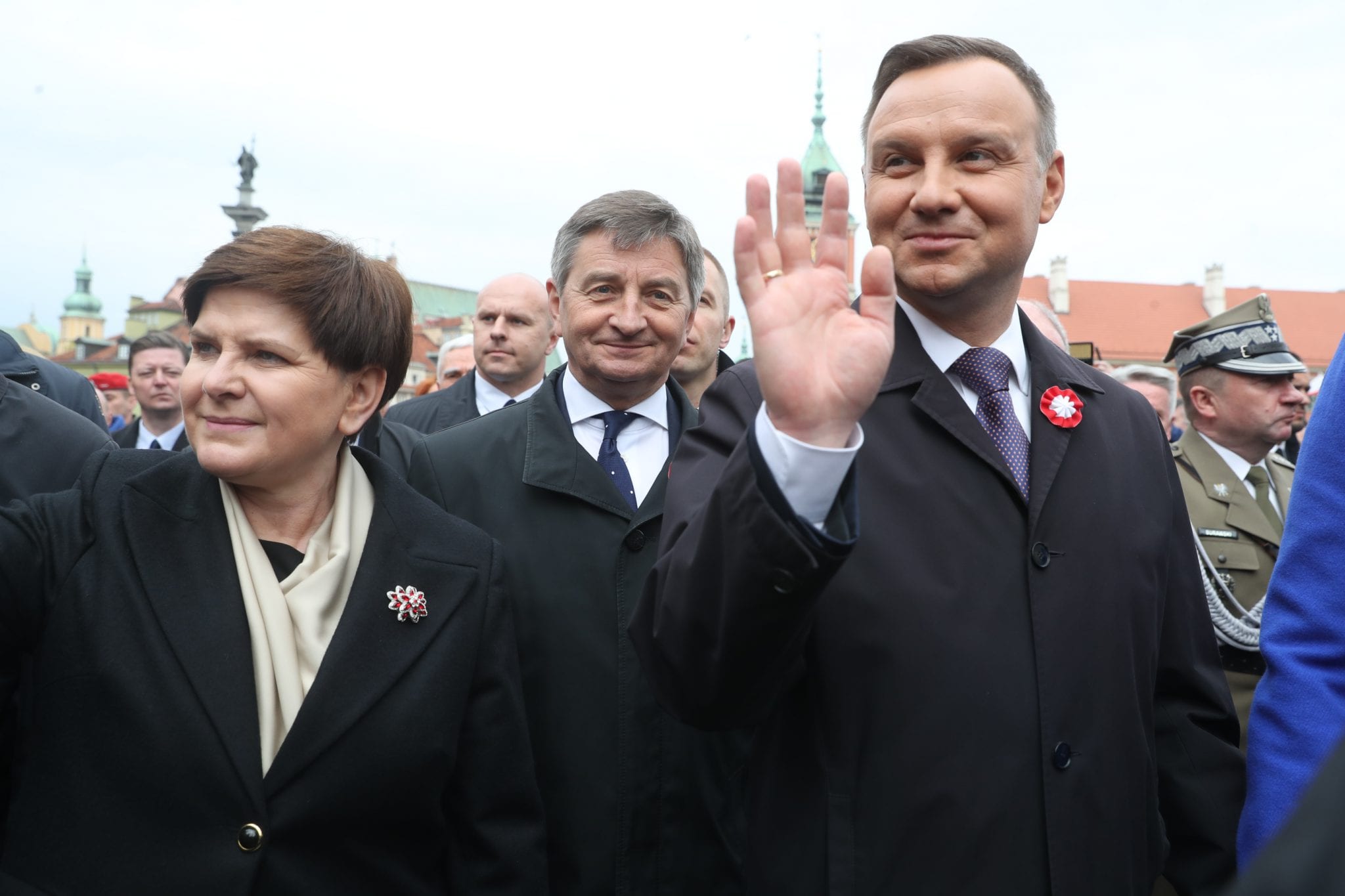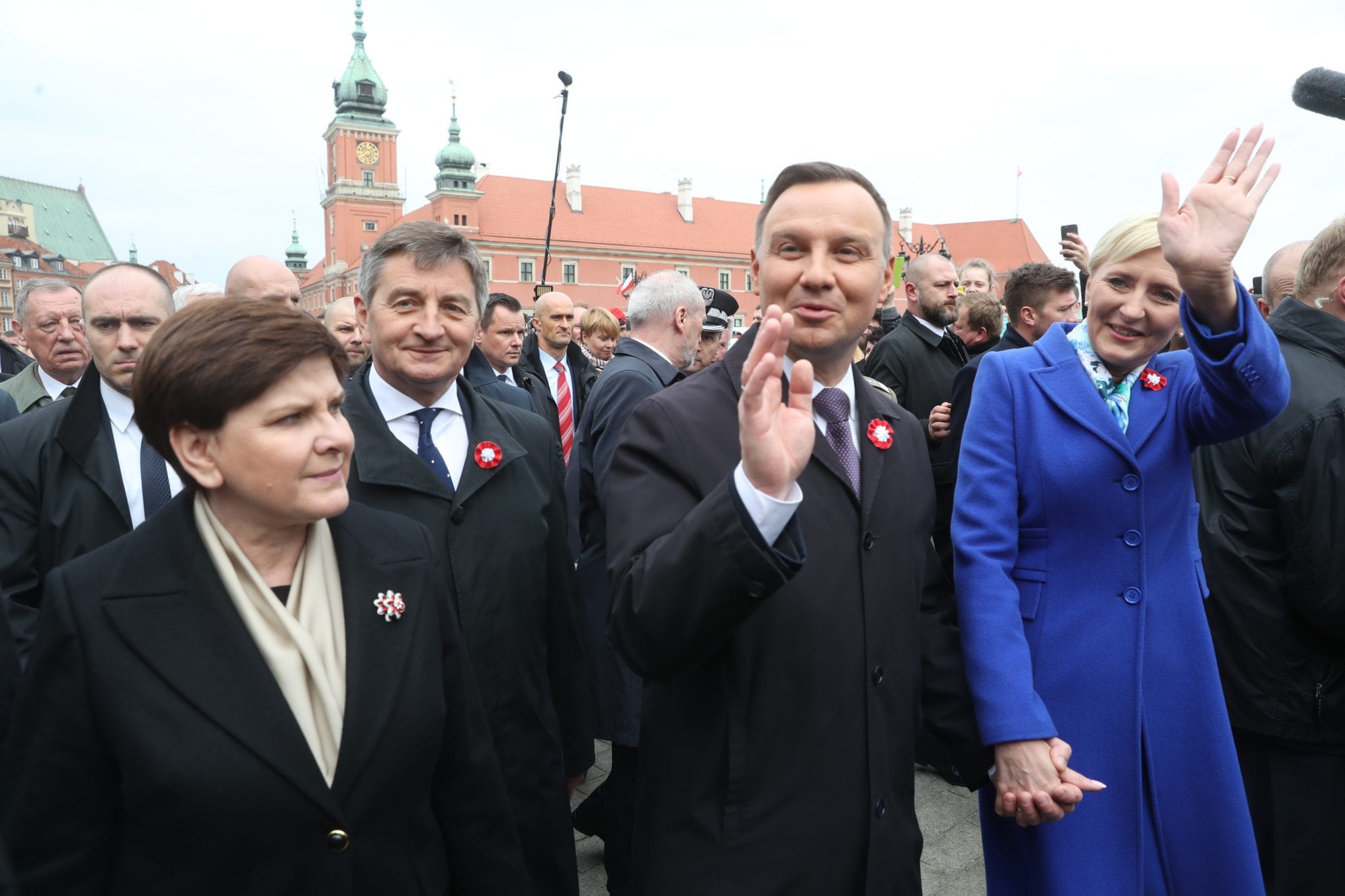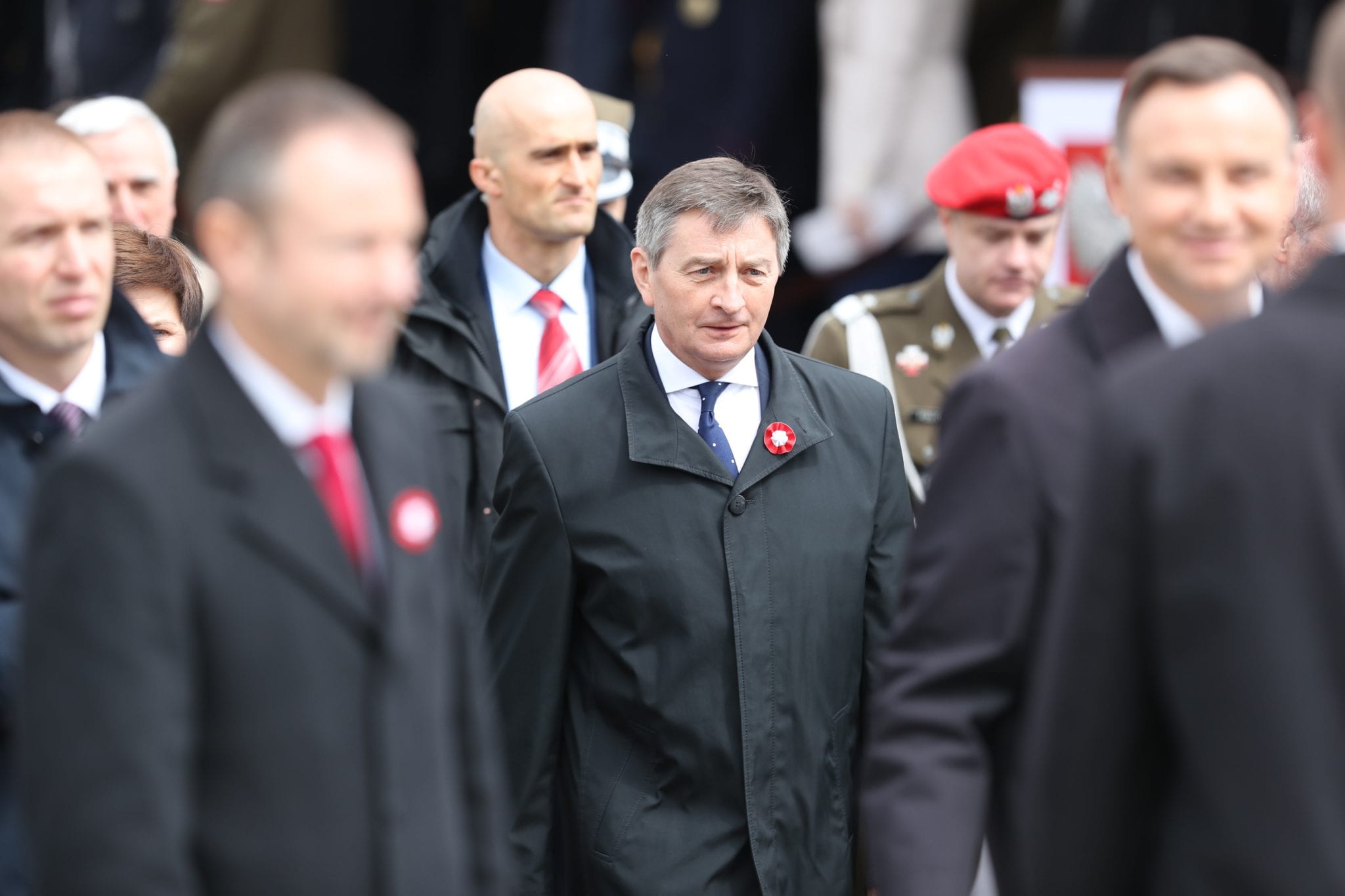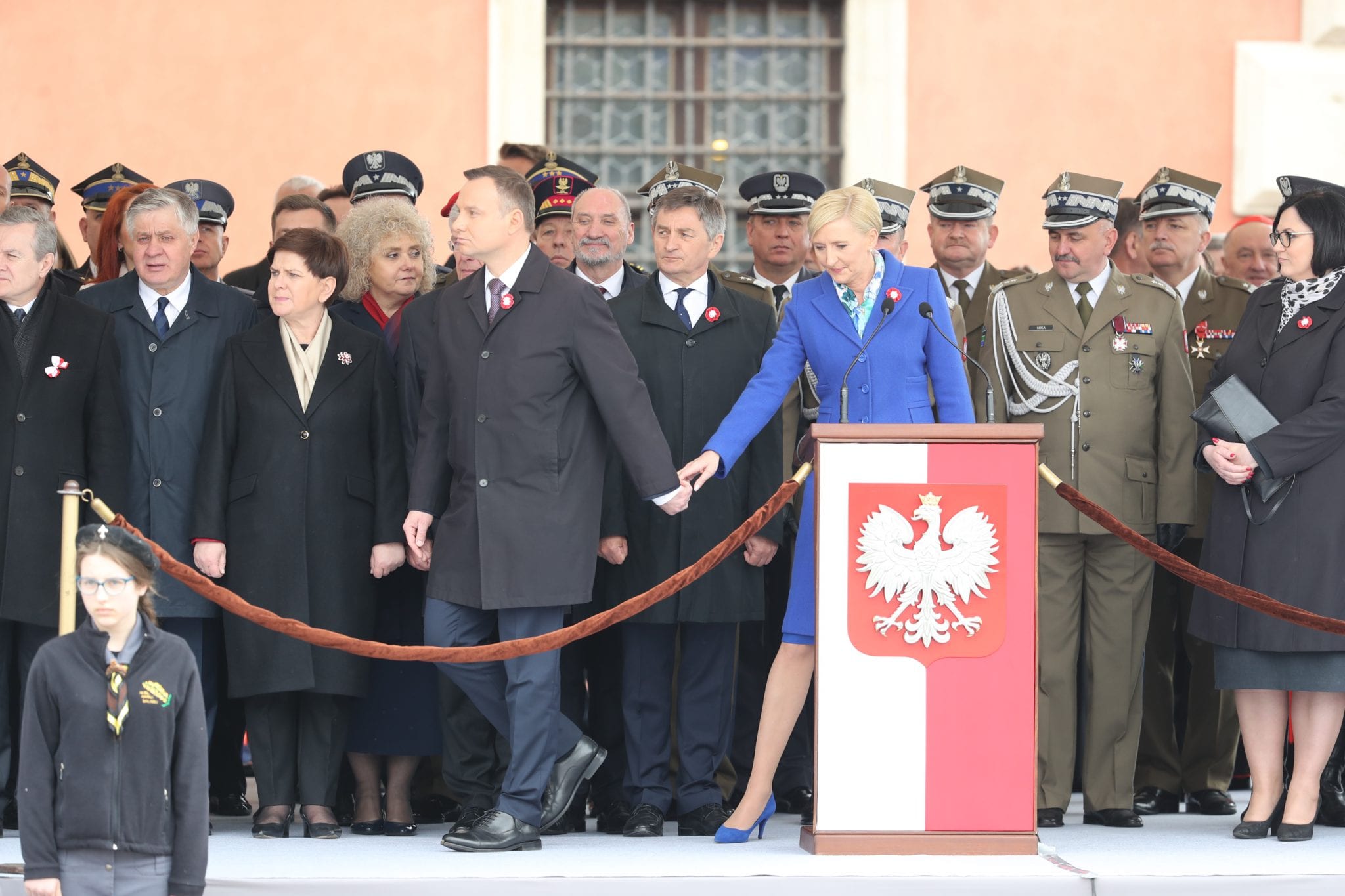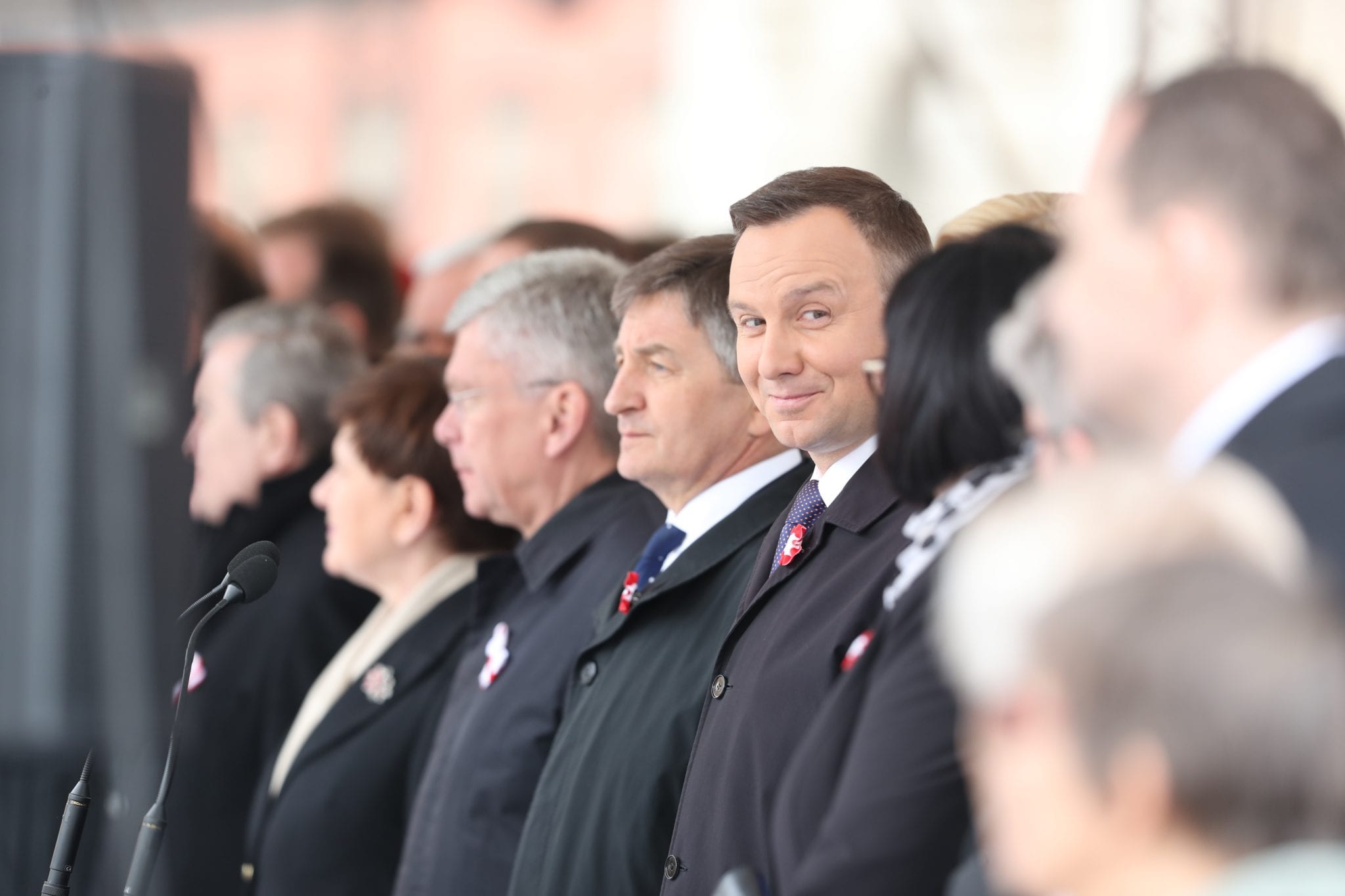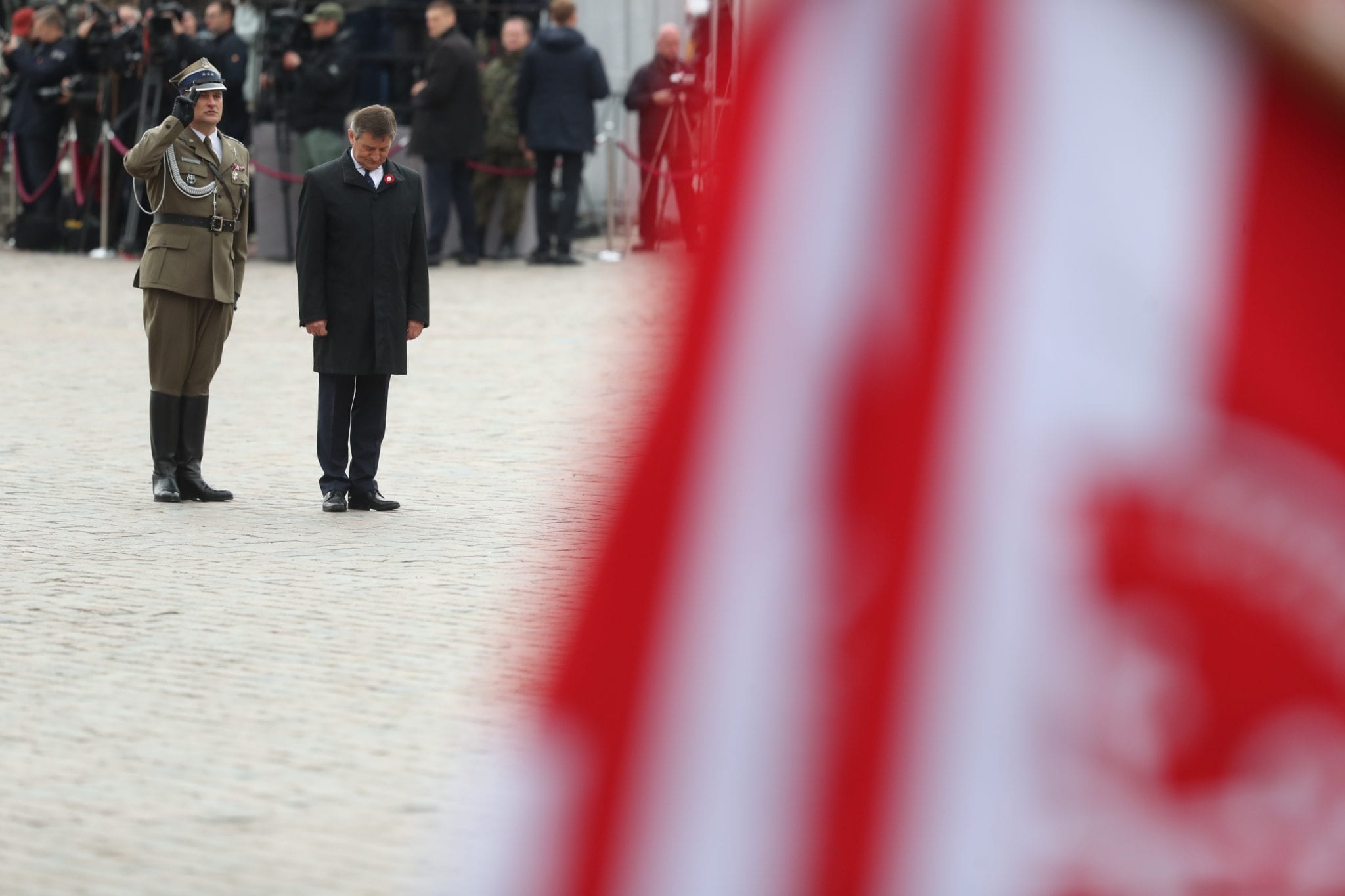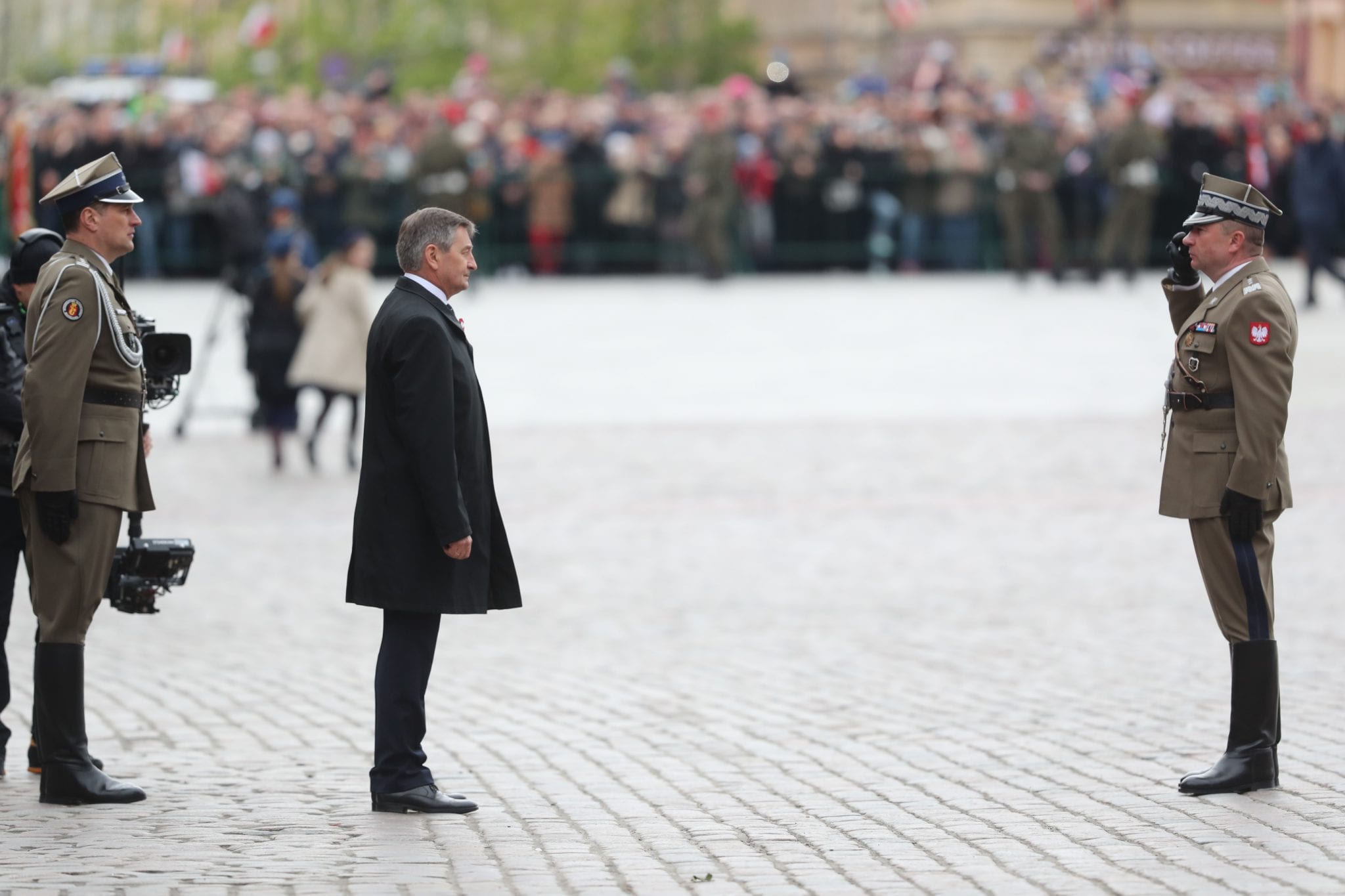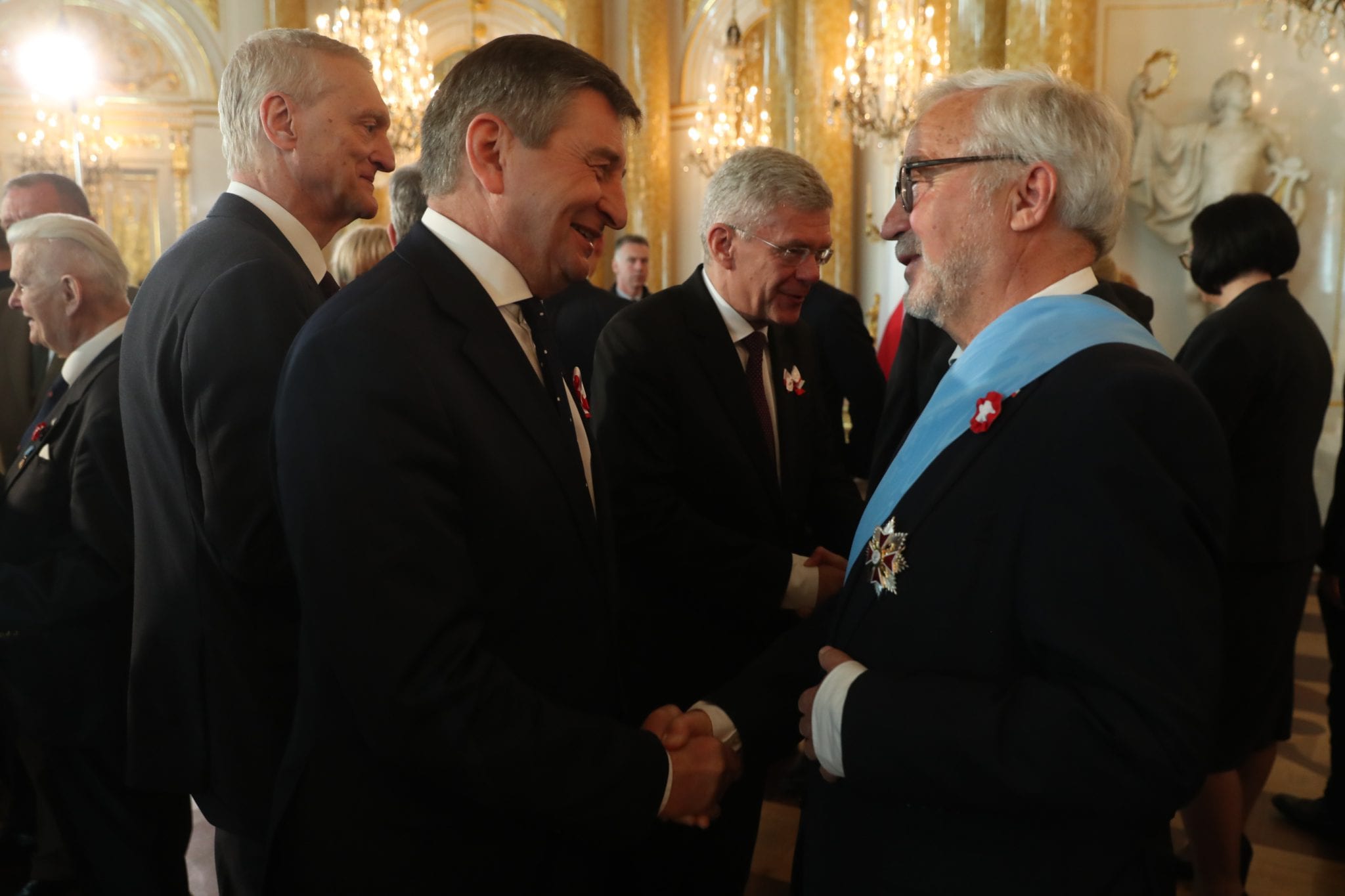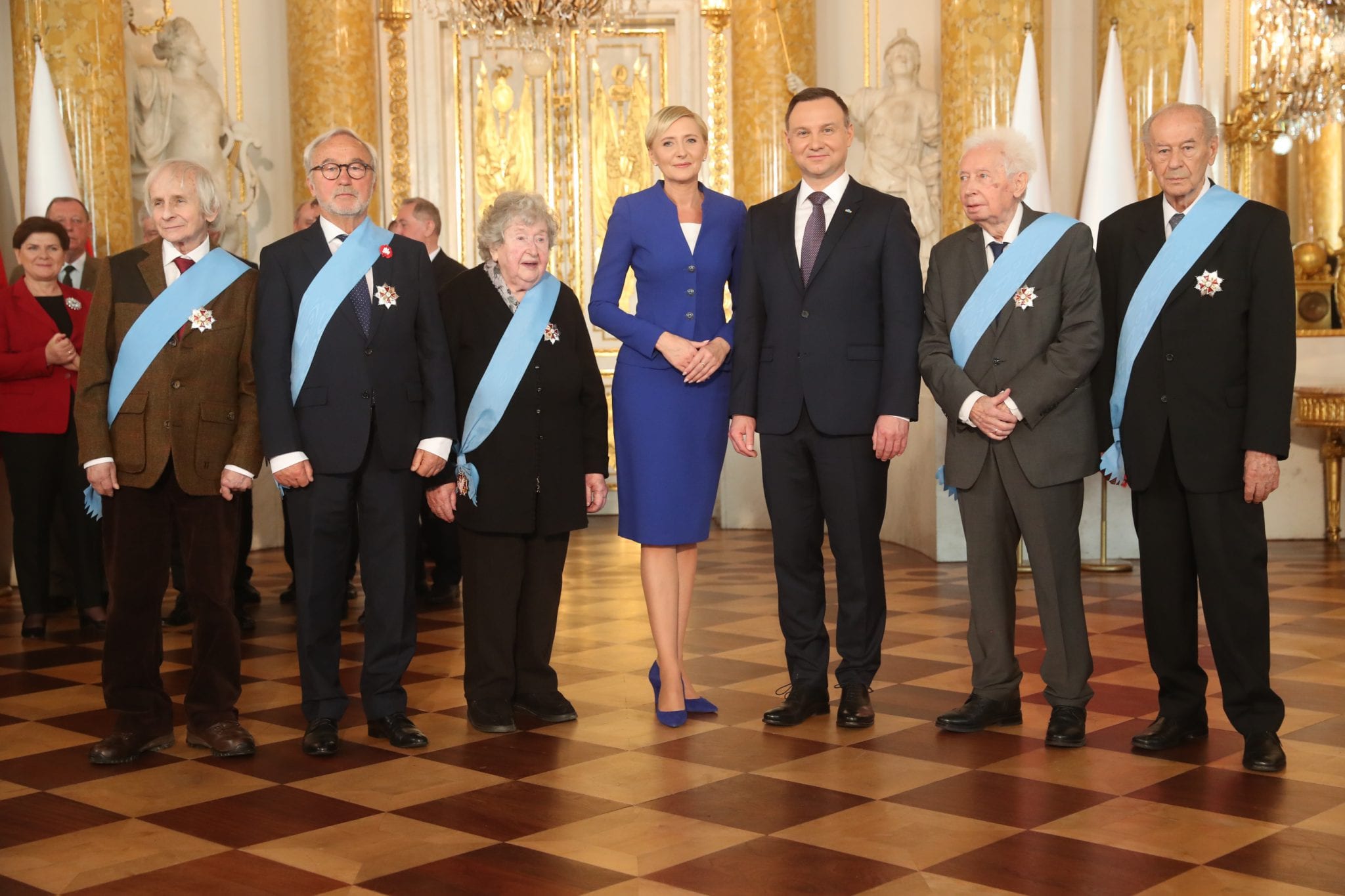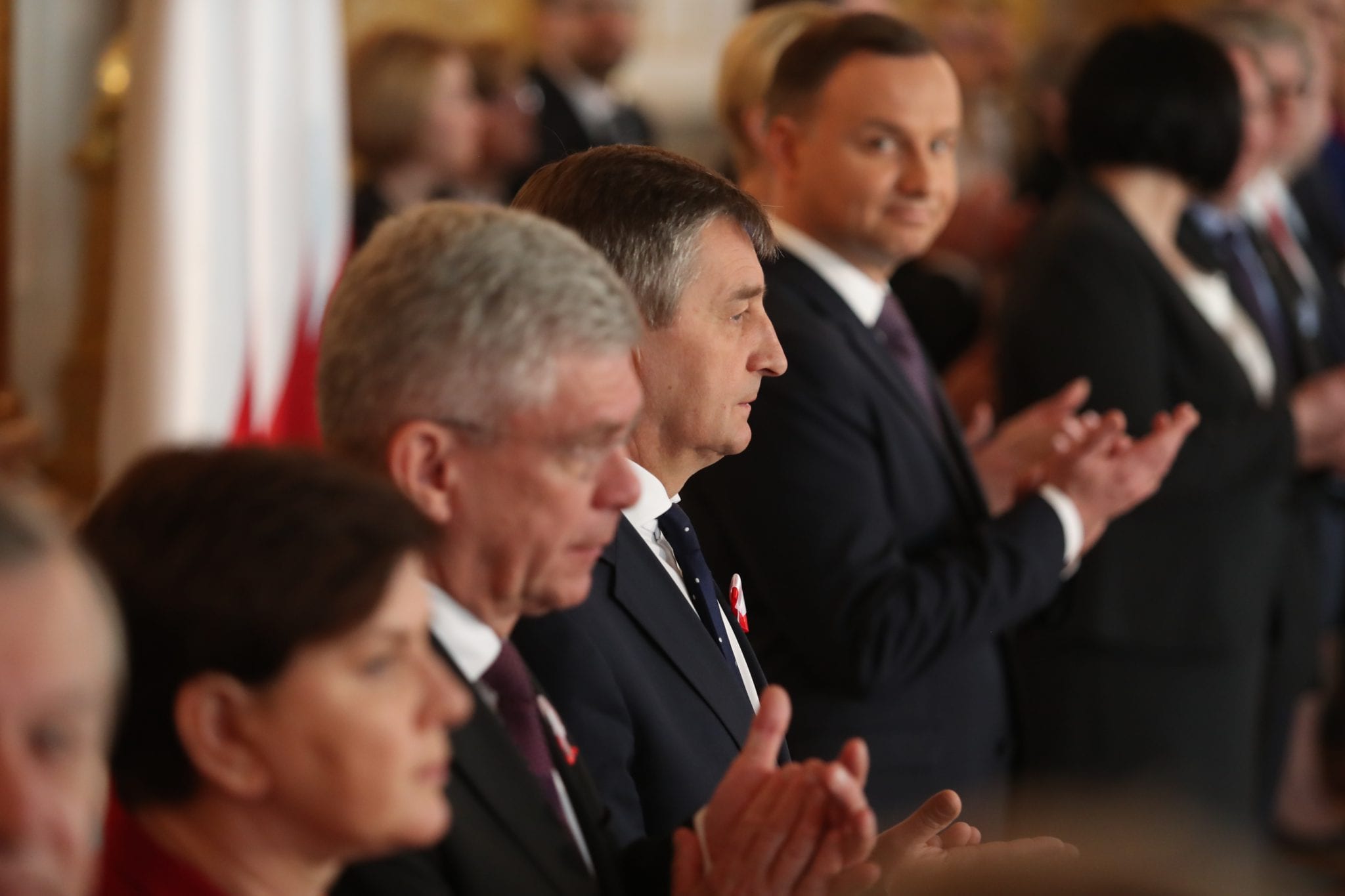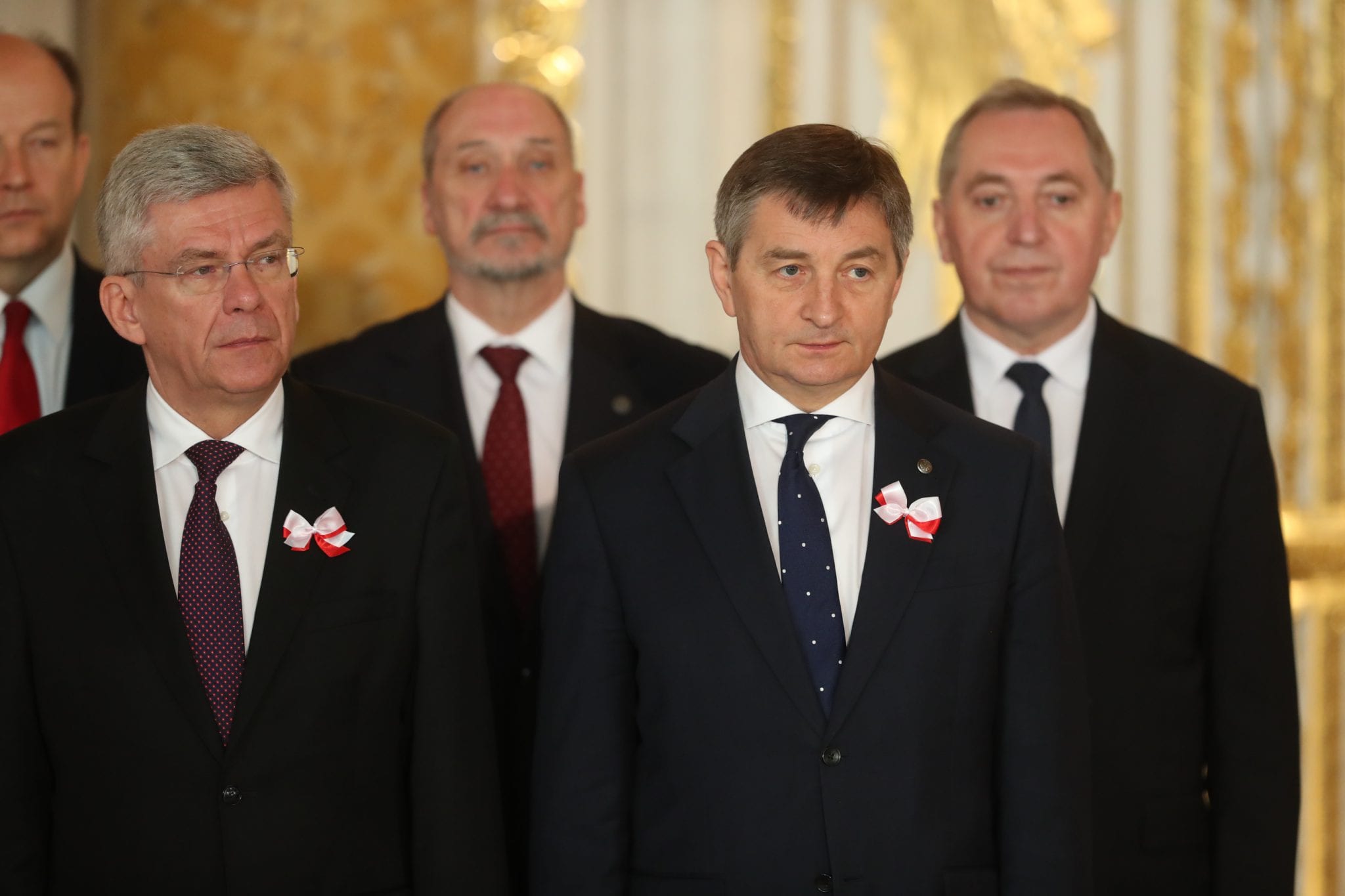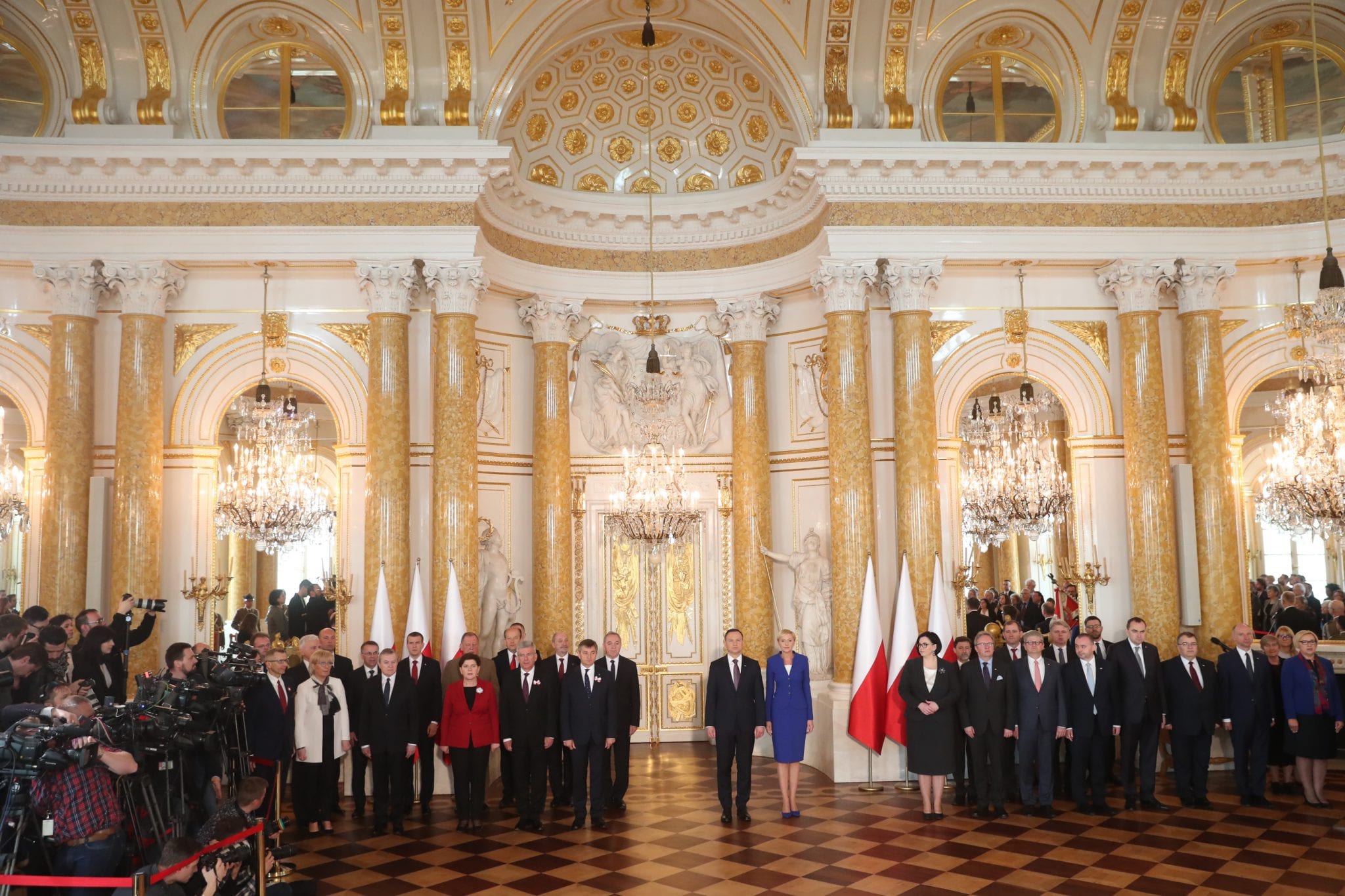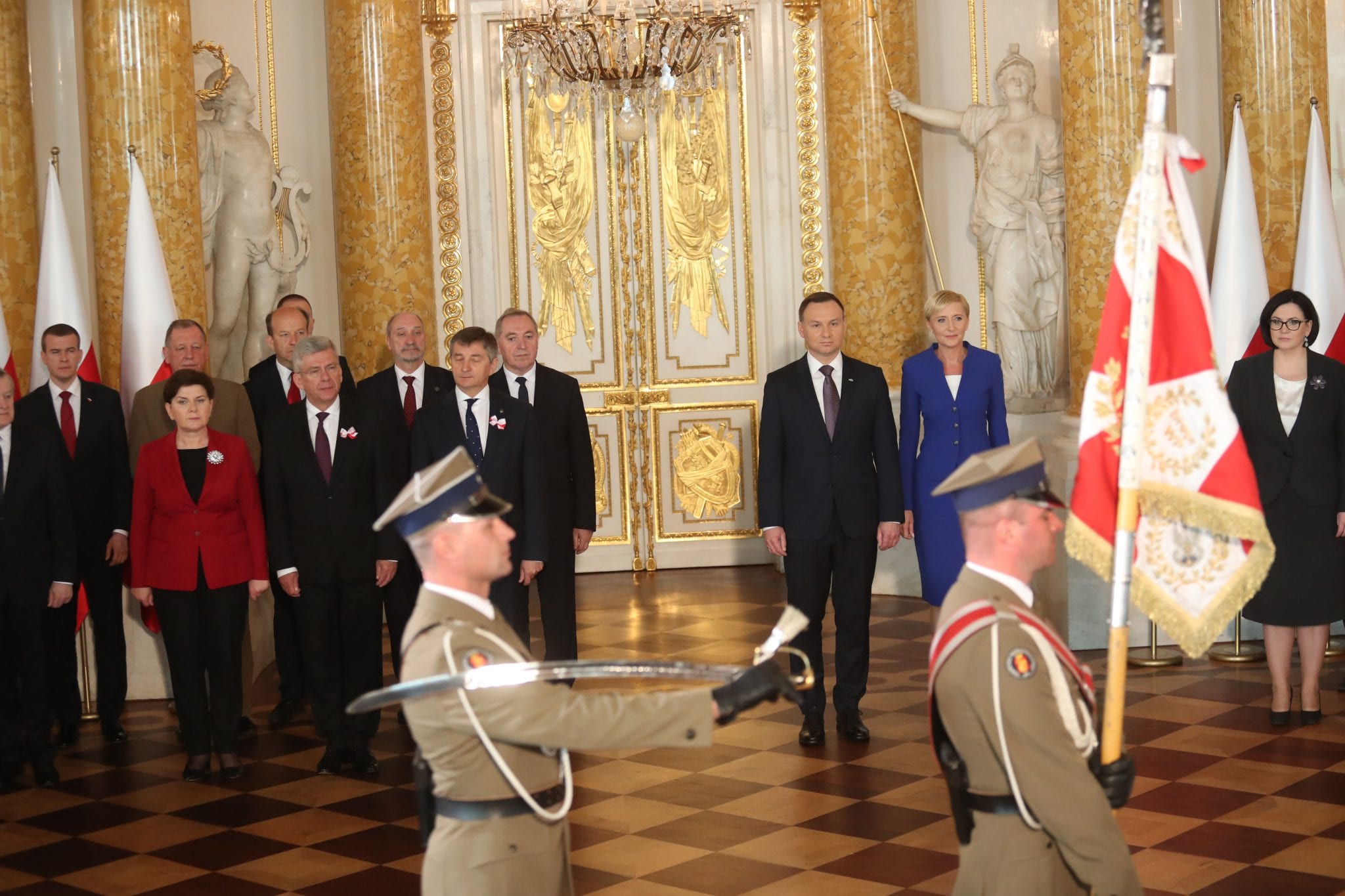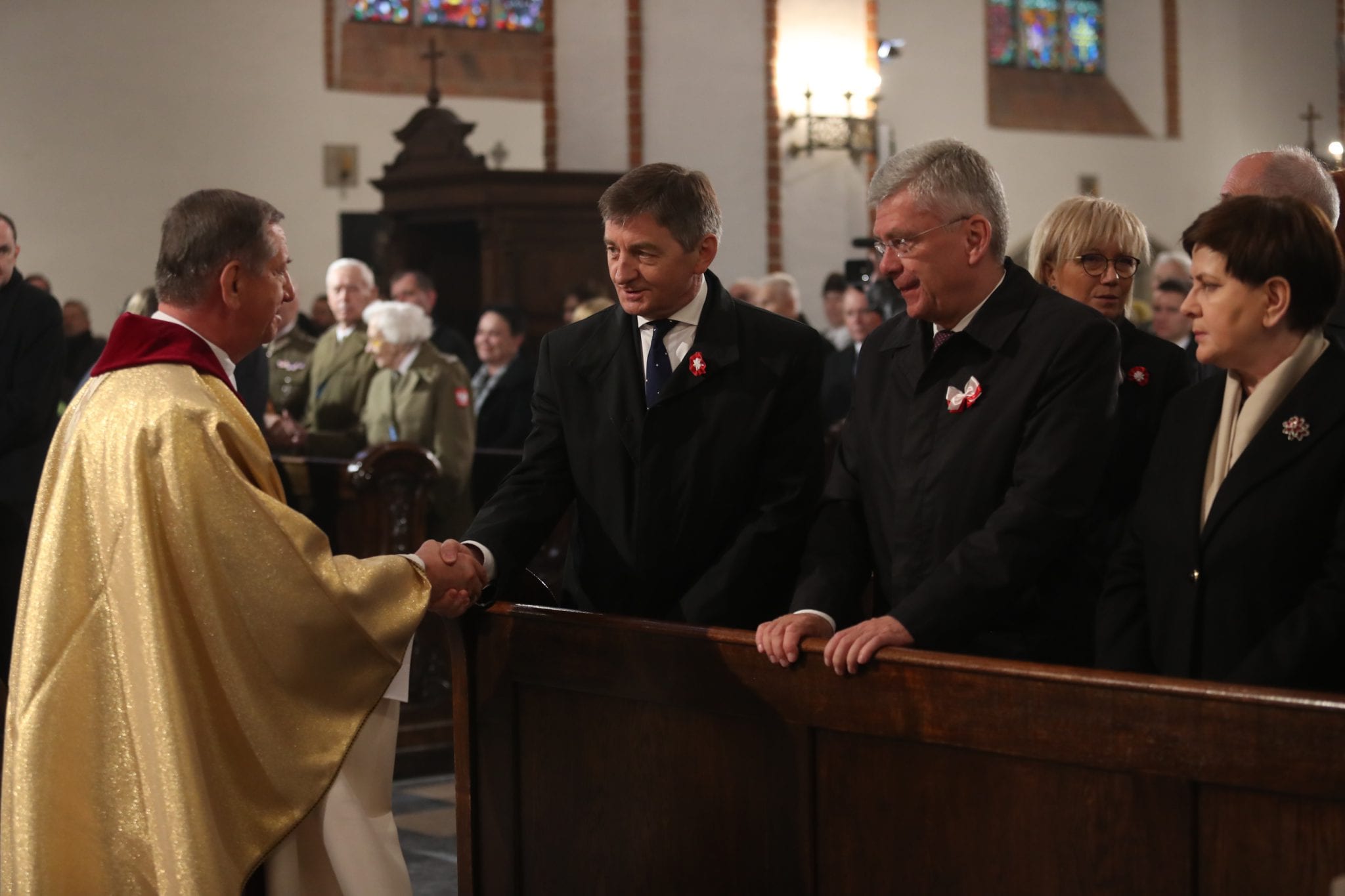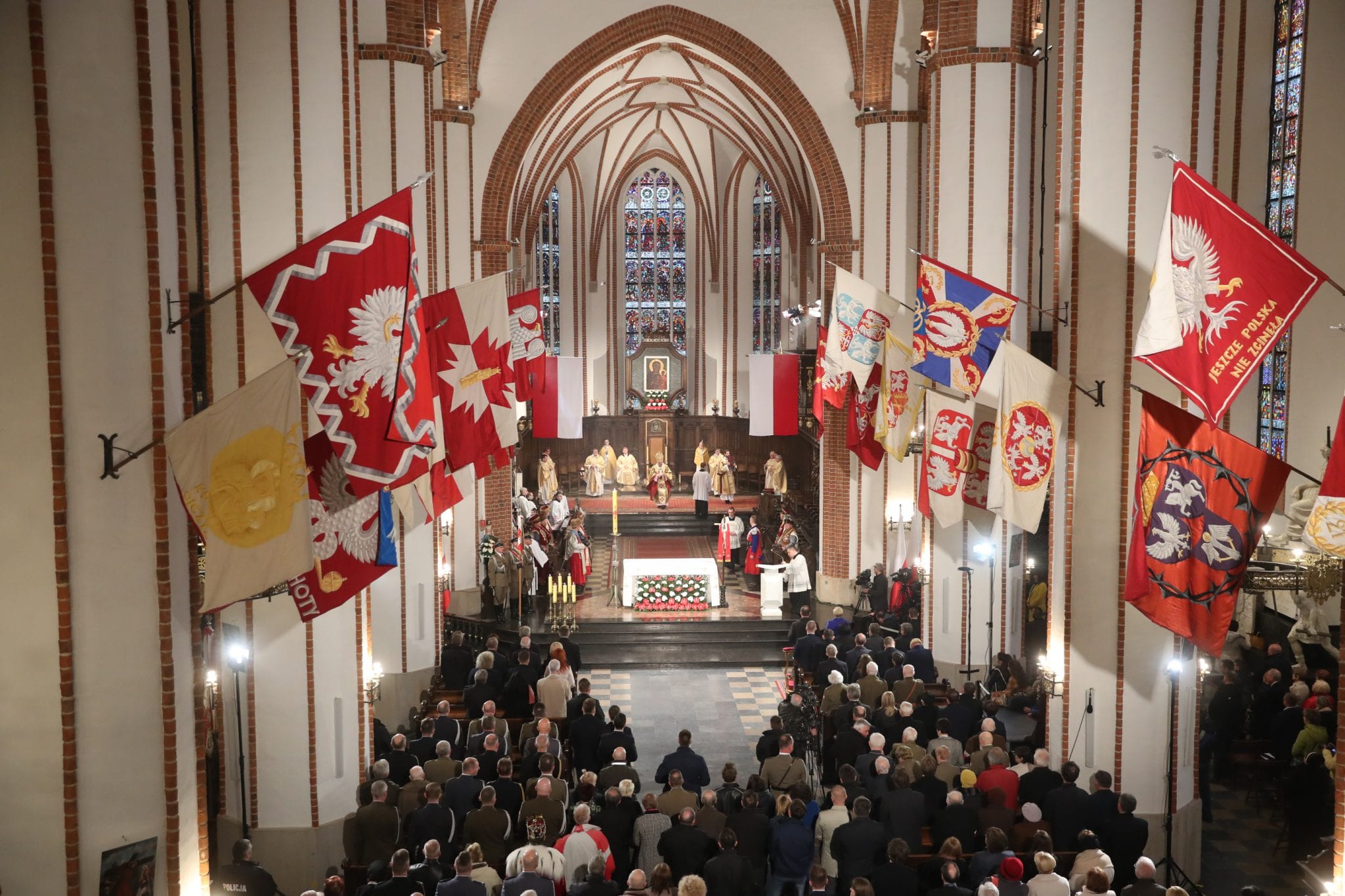The Mass for the intention of the Homeland at St John's Archcathedral in Warsaw started the main celebrations of the 3rd of May National Holiday, which also included ceremonies at the Castle Square and earlier the ceremony of awarding state decorations at the Royal Castle. The celebrations were attended by the representatives of the highest state authorities: President Andrzej Duda and his wife, Marshals of the Sejm and Senate Marek Kuchciński and Stanisław Karczewski, Prime Minister Beata Szydło together with members of the Council of Ministers, parliamentarians, as well as numerous citizens of the capital city and guests.
On the occasion of the National Holiday of May 3 at the Royal Castle the President of the Republic of Poland awarded the Order of the White Eagle to Adam Bujak, a photographer who documented the pontificate of St. John Paul II, Professor Mieczyslaw Chorazy, a medical oncologist, and Jan Krzysztof Kelus, a poet and singer of the democratic opposition in the People's Republic of Poland. Zofia Teliga-Mertens, a social activist helping repatriates from Kazakhstan, and musicologist Prof. Mieczyslaw Tomaszewski also received the highest state award.
The climax of the celebration of the National Holiday of May 3 was the ceremony at the Castle Square. - There are no foreign masters in Poland, so Poland is free. Poland is becoming strong. This dream of a free and strong Poland is deeply rooted in the heart of our nation. And it was already centuries ago when this song was composed," stressed President Andrzej Duda in his speech. As he pointed out, that is why we are so proud of the May 3rd Constitution, because it carried the hope of building a strong, free country.
The President also pointed out the need to start a debate on the new constitution. Andrzej Duda argued that Poles have the right to say whether the current constitution, which has been in force for 20 years, should be changed. - It is time for a serious constitutional debate with the participation of the Polish nation, not only the elites and politicians,' explained the President. - I want Poland to hold a referendum on the Constitution next year - on the 100th anniversary of its independence,' Andrzej Duda stressed. The President expressed hope that this undertaking will be possible to carry out beyond the divisions.
During the ceremony at the Castle Square the national anthem was sung and the preamble of the May 3rd Constitution was read. A ceremonial presentation of Polish Army subunits and a parade of the representative company of the Polish Armed Forces took place in front of the Royal Castle in Warsaw. To commemorate the 226th anniversary of the May 3rd Constitution an occasional cannon salute was fired from Marshal Jozef Pilsudski Square.
***
226 years ago, on May 3, 1791, the Great Seym passed the Constitution of the Polish-Lithuanian Commonwealth. It was the first written constitution in modern Europe and the second one in the world, after the American one. This constitution regulated, among other things, the organization of state authorities as well as rights and duties of citizens. - All power in human society originates from the will of the people. Therefore, so that the totality of states, civil liberty, and the order of society may remain in equal weight forever, the government of the Polish nation should, and by the will of the present law shall forever consist of three authorities: the legislative authority in the assembled States, the supreme executive authority in the King and Guard, and the judicial authority in the jurisdictions established or to be established at this end," reads the document.
"The Government Act" of 226 years ago contained a vision and program for building a modern state and society. The May 3rd Constitution changed the state system to a hereditary monarchy, significantly limited the democracy of the nobility, introduced political equality between the bourgeoisie and the nobility, and ensured the protection of the state for peasants. The Constitution also formally abolished the liberum veto. It was a document that restored hope and a sense of responsibility for their country to the Poles. It remains a symbol of courageous and innovative thinking about the shape of the Republic of Poland.
text: Chancellery of the Sejm
photo: Pawel Kula


